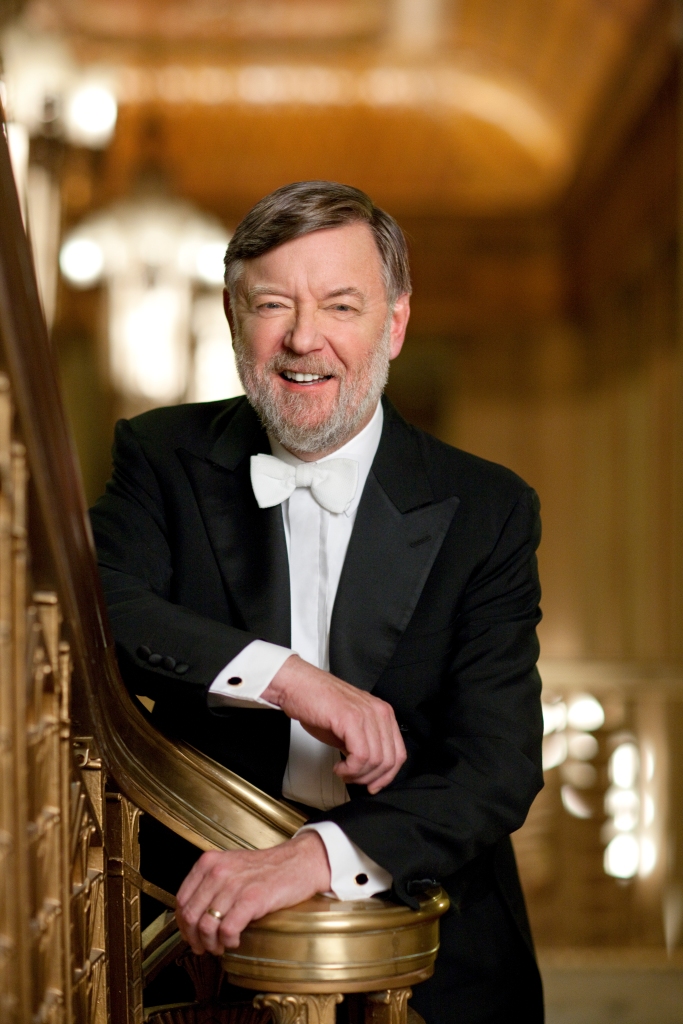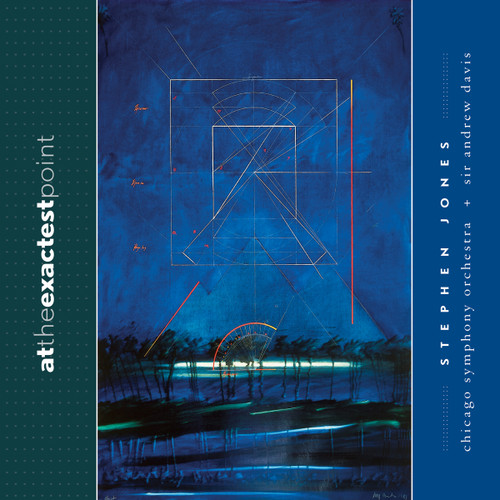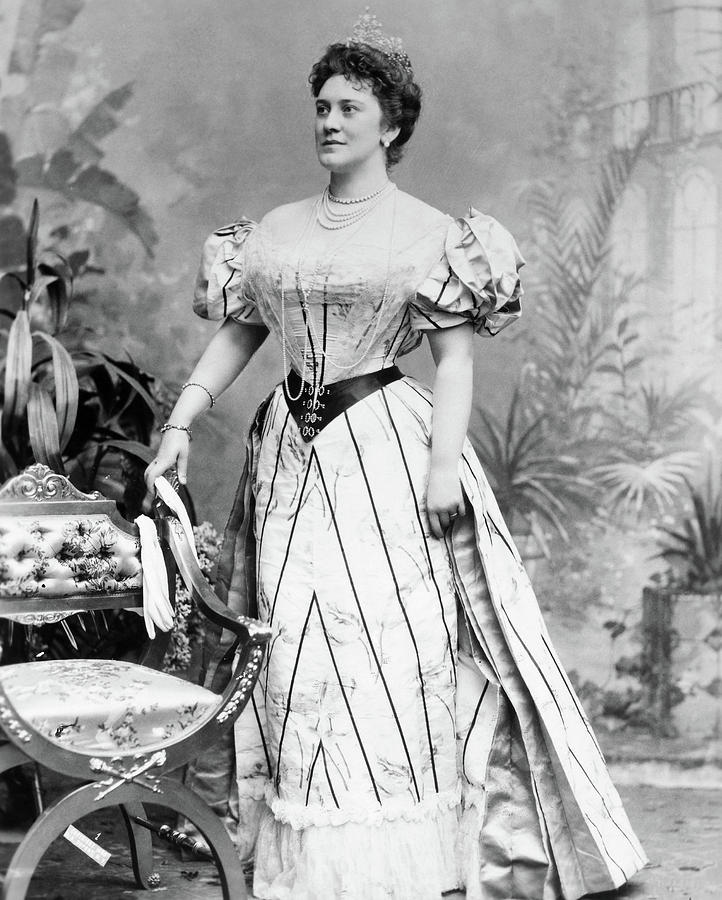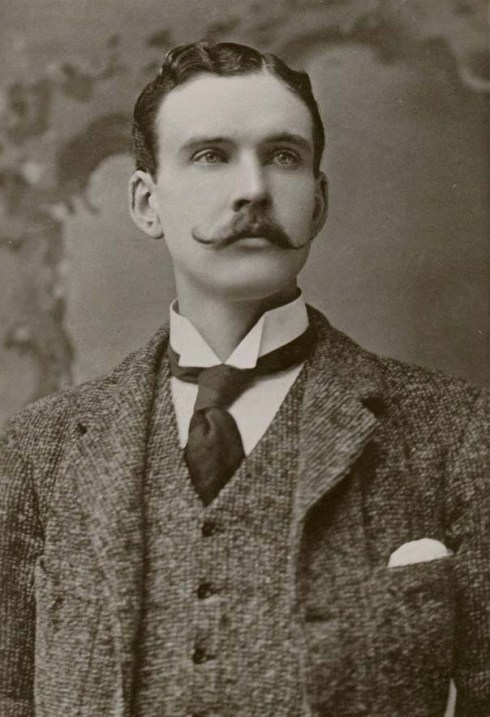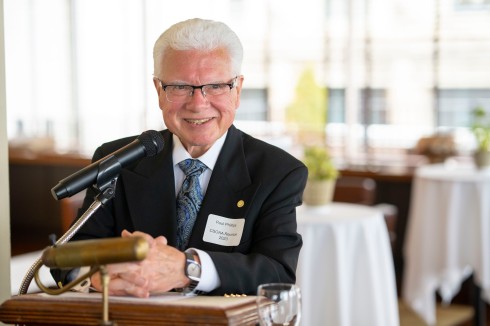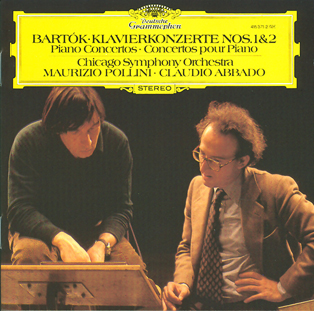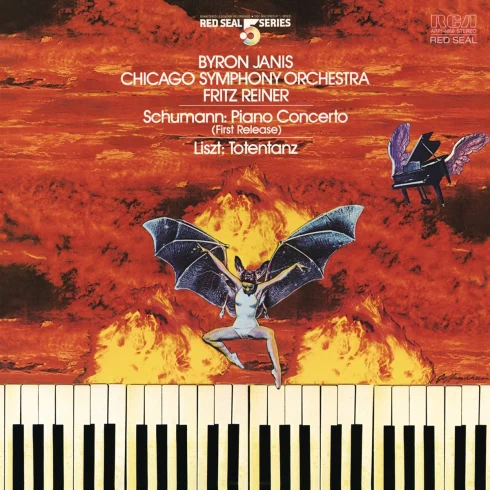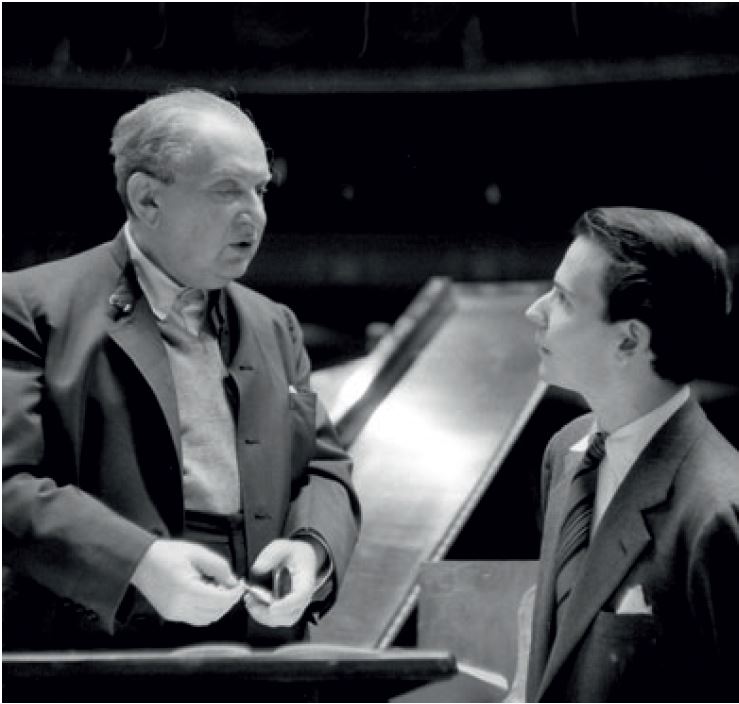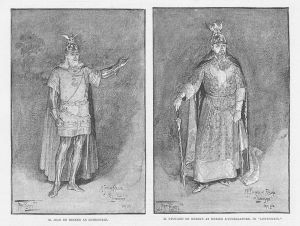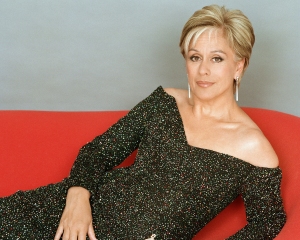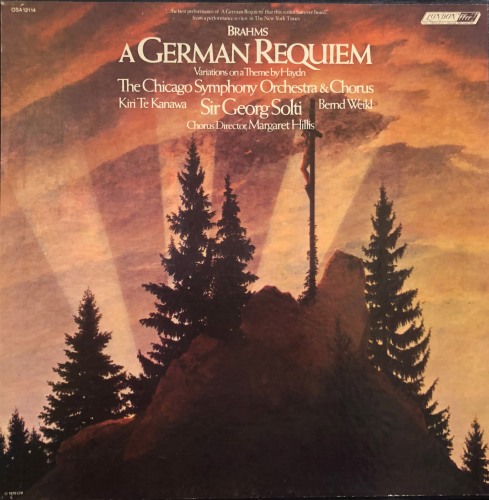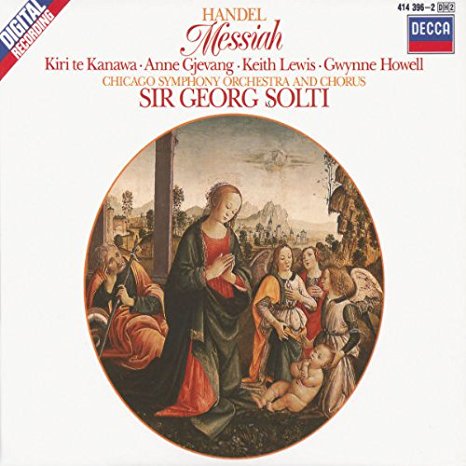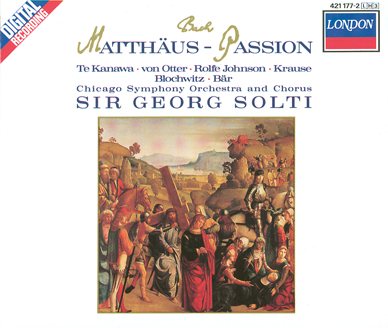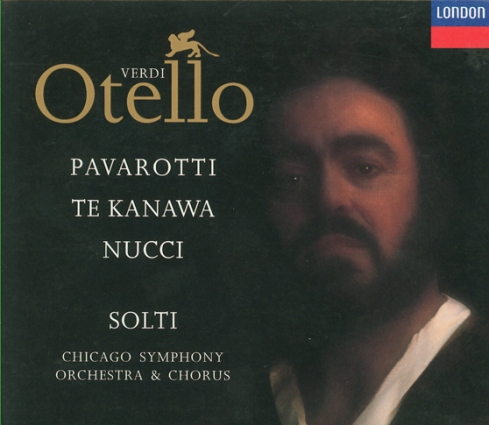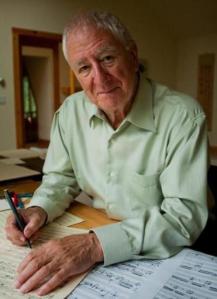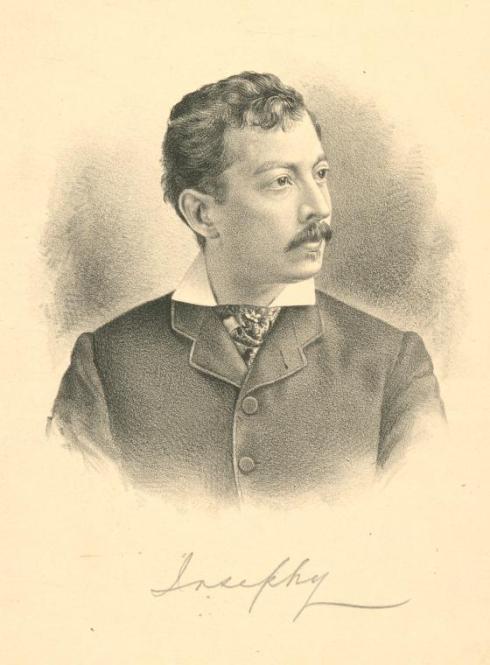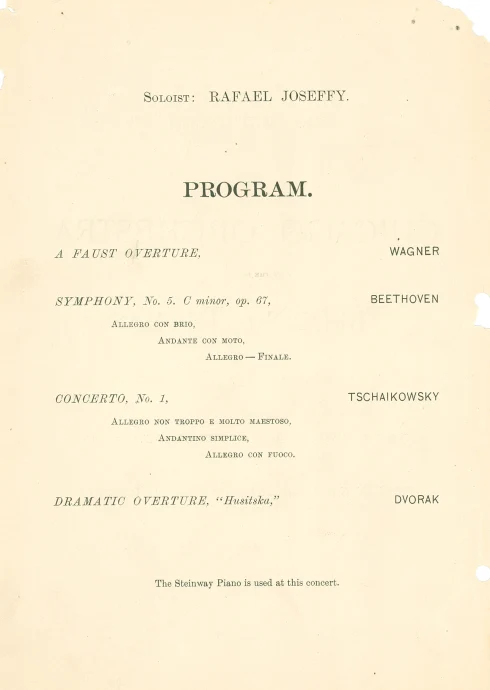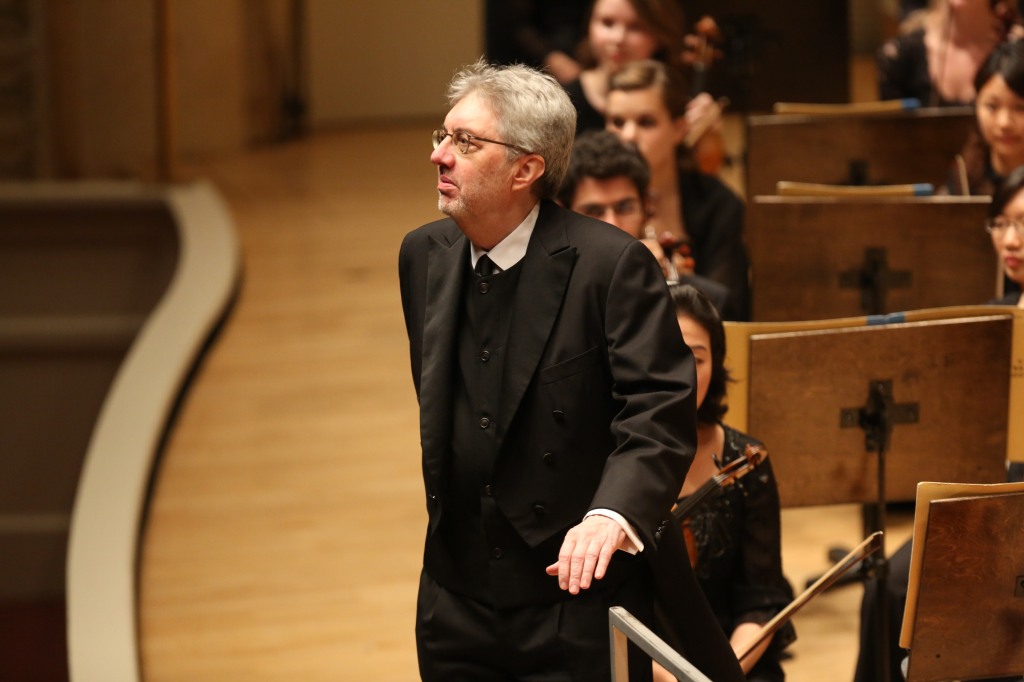The Chicago Symphony Orchestra family joins the music world in mourning the loss of English conductor Sir Andrew Davis, a frequent and beloved guest on the podium for nearly fifty years. He died in Chicago on April 20, 2024, at the age of eighty.
Sir Andrew Davis served as music director and principal conductor of Lyric Opera of Chicago from 2000 until 2021, in addition to holding posts with the BBC Symphony Orchestra, Glyndebourne Festival Orchestra, Melbourne Symphony Orchestra, Toronto Symphony Orchestra, and the Royal Liverpool Philharmonic. Born in 1944 in Hertfordshire, England, Davis studied at King’s College, Cambridge, where he was an organ scholar before studying conducting. In 1992, he was made a Commander of the British Empire, and in 1999 he was designated a Knight Bachelor in the New Year Honors List.
“I first heard Andrew Davis conduct in the fall of 1975 when I was a student at the New England Conservatory. It was a Boston Symphony Orchestra concert, and the main work was Ein Heldenleben, a glorious performance I remember in great detail to this day,” remarked Jeff Alexander, president of the Chicago Symphony Orchestra Association. “I then had the honor of working with him while serving as general manager of the Cincinnati Symphony Orchestra in the 1980s and ’90s, as he often appeared there as guest conductor. Once again, the concerts were beautifully conducted, and getting to know him was a genuine pleasure. How fortunate we have been at the Chicago Symphony Orchestra to have enjoyed Sir Andrew’s music-making, jovial nature, and good wit for nearly fifty years, most recently conducting his orchestration of Handel’s Messiah this past December. The world has lost a great artist, true gentleman, and dear friend. Our memories of his concerts, kind nature, and that ever-present twinkle in his eye will live with us forever.”

“I’m deeply saddened by the news of Andrew’s passing. I’ve known him since my days as the music director of the Philharmonia Orchestra, where he served as my associate conductor,” wrote Riccardo Muti, the CSO’s music director emeritus for life. “Since then, our relationship of friendship and admiration has been long and uninterrupted. My condolences go out to all his family members, to whom I feel close in this sad moment.”
“The news of his passing has come as a shock and is terribly sad,” added Cristina Rocca, vice president of artistic planning for the CSOA. “Sir Andrew was a wonderful, warm, charming person, and a brilliant conductor who served music with such love, passion, knowledge, and commitment! His legacy is huge, and he will be remembered with great fondness and deep respect everywhere. His performances of Messiah, in his own orchestration, back in December, were joyful and marvelous and we were very much looking forward to his return to our stage. He gave so much to music, and we will miss him greatly.”
Davis made his debut with the Chicago Symphony Orchestra in February 1975, leading Elgar’s Introduction and Allegro for Strings, Birtwistle’s The Triumph of Time, and Berlioz’s Harold in Italy with Milton Preves. He first conducted the ensemble at the Ravinia Festival in July 1976, in Lees’s Concerto for String Quartet and Orchestra with the Chicago Symphony String Quartet (Victor Aitay, Edgar Muenzer, Milton Preves, and Frank Miller), Mozart’s Piano Concerto no. 20 with Emanuel Ax, and Beethoven’s Symphony no. 7.
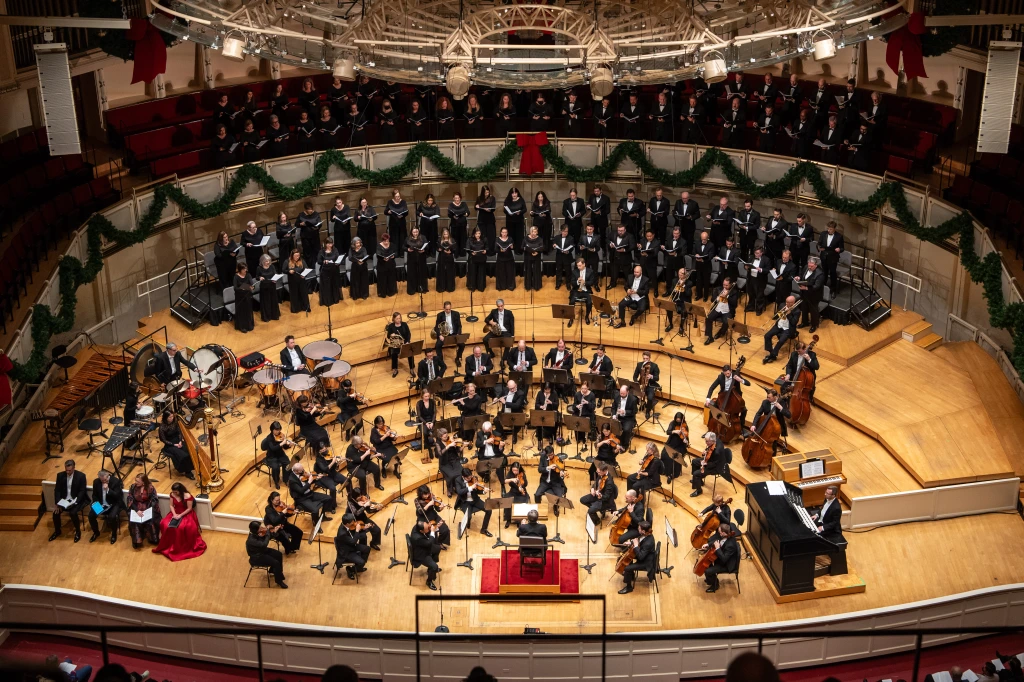
Most recently, Davis led the Orchestra at the Ravinia Festival in July 2016, conducting Vaughan Williams’s Fantasia on a Theme by Thomas Tallis, Elgar’s Cello Concerto with Alisa Weilerstein, and Beethoven’s Symphony no. 5. In December 2023, he was on the podium for the U.S. premiere of his own orchestration of Handel’s Messiah, with the Chicago Symphony Orchestra and Chorus (prepared by James K. Bass) and soloists Joélle Harvey, Jennifer Johnson Cano, Matthew Polenzani, and John Relyea.
A complete list of his performances with the Chicago Symphony Orchestra and Chorus is below.
February 13 and 14, 1975, Orchestra Hall
ELGAR Introduction and Allegro for Strings, Op. 47
BIRTWISTLE The Triumph of Time
BERLIOZ Harold in Italy, Op. 16
Milton Preves, viola
July 29, 1976, Ravinia Festival
LEES Concerto for String Quartet and Orchestra
Chicago Symphony String Quartet
Victor Aitay, violin
Edgar Muenzer, violin
Milton Preves, viola
Frank Miller, cello
MOZART Piano Concerto No. 20 in D Minor, K. 466
Emanuel Ax, piano
BEETHOVEN Symphony No. 7 in A Major, Op. 92
July 31, 1976, Ravinia Festival
BERLIOZ Overture to Beatrice and Benedict
BRAHMS Violin Concerto in D Major, Op. 77
Isaac Stern, violin
ELGAR Variations on an Original Theme, Op. 36 (Enigma)
December 16, 17, and 18, 1976, Orchestra Hall
SUBOTNICK Before the Butterfly
BEETHOVEN Piano Concerto No. 1 in C Major, Op. 15
Stephen Bishop-Kovacevich, piano
DVOŘÁK Symphony No. 7 in D Minor, Op. 70
November 21, 23, and 24, 1979, Orchestra Hall
November 26, 1979, Uihlein Hall, Milwaukee
CHOPIN Piano Concerto No. 1 in E Minor, Op. 11
Jorge Bolet, piano
DVOŘÁK Symphony No. 6 in D Major, Op. 60
June 12, 13, and 14, 1986, Orchestra Hall
BRITTEN Four Sea Interludes from Peter Grimes, Op. 33a
BEETHOVEN Piano Concerto No. 4 in G Major, Op. 58
Mitsuko Uchida, piano
PROKOFIEV Symphony No. 5 in B-flat Major, Op. 100
March 4, 5, 6, and 9, 1999, Orchestra Hall
MOZART Piano Concerto No. 27 in B-flat Major, K. 595
Andreas Haefliger, piano
ELGAR/Payne Symphony No. 3
March 15, 16, and 17, 2001, Orchestra Hall
HAYDN Symphony No. 104 in D Major (London)
BRITTEN Serenade for Tenor, Horn, and Strings, Op. 31
Kurt Streit, tenor
Dale Clevenger, horn
WALKER Lyric for Strings
STRAVINSKY Symphony in Three Movements
July 13, 2001, Ravinia Festival
BRAHMS Violin Concerto in D Major, Op. 77
Sarah Chang, violin
STRAUSS Also sprach Zarathustra, Op. 30
July 14, 2001, Ravinia Festival
BACH/Webern Fuga (Ricercata) a 6 voci from The Musical Offering, BWV 1079
BERG Violin Concerto
Leonidas Kavakos, violin
MENDELSSSOHN Incidental Music to A Midsummer Night’s Dream, Op. 61
John de Lancie, actor
John Mahoney, actor
Janet Zarish, actor
Timothy Gregory, actor
Stacey Tappan, soprano
Lauren McNeese, mezzo-soprano
Chicago Children’s Choir
July 15, 2001, Ravinia Festival
MOZART Piano Concerto No. 12 in A Major, K. 414
Leon Fleisher, piano
MOZART Symphony No. 39 in E-flat Major, K. 543
MOZART Clarinet Concerto in A Major, K. 622
Larry Combs, clarinet
February 6, 7, 8, and 11, 2003, Orchestra Hall
BERLIOZ Overture to Benvenuto Cellini
HINDEMITH Der Schwanendreher
Charles Pikler, viola
DVOŘÁK Symphony No. 6 in D Major, Op. 60
March 19, 2003, Orchestra Hall (MusicNOW)
HOLT Lilith
ANDERSON Alhambra Fantasy
Musicians from the Chicago Symphony Orchestra
June 5, 6, and 7, 2003, Orchestra Hall
HAYDN Symphony No. 92 in G Major (Oxford)
TIPPETT The Rose Lake
BEETHOVEN Symphony No. 8 in F Major, Op. 93
November 8 and 11, 2003, Orchestra Hall
VAUGHAN WILLIAMS Serenade to Music
Samuel Magad, violin
Chicago Symphony Singers
Duain Wolfe, director
TCHAIKOVSKY Romeo and Juliet
January 8, 9, and 10, 2004, Orchestra Hall
JONES at the exactest point (world premiere)
PROKOFIEV Selections from Cinderella, Op. 87
RACHMANINOV Piano Concerto No. 3 in D Minor, Op. 30
Louis Lortie, piano
Stephen Jones’s at the exactest point was released by Tantara Records in 2004
February 10, 2004, Orchestra Hall
BEETHOVEN Symphony No. 9 in D Minor, Op. 125
Deborah Voigt, soprano
Marietta Simpson, mezzo-soprano
Clifton Forbis, tenor
Robert Holl, bass
Chicago Symphony Chorus
Duain Wolfe, director
Davis was a last-minute replacement for Daniel Barenboim, who canceled due to illness.
February 12, 13, and 14, 2004, Orchestra Hall
STRAVINSKY Divertimento, Suite from The Fairy’s Kiss
LIEBERSON Red Garuda for Piano and Orchestra
Peter Serkin, piano
BEETHOVEN Symphony No. 5 in C Minor, Op. 67
September 10, 2004, Orchestra Hall (Opening Night)
TCHAIKOVSKY Violin Concerto in D Major, Op. 35
Nikolaj Znaider, violin
GRIEG Selections from Peer Gynt
Wynton Marsalis, narrator
Valdine Anderson, soprano
Lincoln Center Jazz Orchestra
MARSALIS Expressbrown Local from All Rise
Lincoln Center Jazz Orchestra
Wynton Marsalis, trumpet
September 11, 2004, Orchestra Hall (Marshall Field’s Day of Music)
STRAVINSKY Fireworks
TCHAIKOVSKY Violin Concerto in D Major, Op. 35
Nikolaj Znaider, violin
RAVEL Mother Goose Suite
RAVEL Daphnis and Chloe Suite No. 2
September 12 and 14, 2004, Orchestra Hall
STRAVINSKY Fireworks
SZYMANOWSKI Violin Concerto No. 1, Op. 35
Nikolaj Znaider, violin
RAVEL Mother Goose Suite
RAVEL Daphnis and Chloe Suite No. 2
June 2, 3, and 5, 2005, Orchestra Hall
HANDEL The King Shall Rejoice
HANDEL My Heart is Inditing
HANDEL Zadok the Priest
Chicago Symphony Chorus
Duain Wolfe, director
TIPPETT A Child of Our Time
Nicole Cabell, soprano
Guang Yang, mezzo-soprano
Scott Ramsay, tenor
Christian van Horn, bass-baritone
Chicago Symphony Chorus
Duain Wolfe, director
October 20, 2005, Orchestra Hall
BEETHOVEN Piano Concerto No. 2 in B-flat Major, Op. 19
Evgeny Kissin, piano
BEETHOVEN Piano Concerto No. 1 in C Major, Op. 15
Evgeny Kissin, vgeny; piano
BEETHOVEN Piano Concerto No. 3 in C Minor, Op. 37
Evgeny Kissin, piano
October 22 and 25, 2005, Orchestra Hall
BEETHOVEN Piano Concerto No. 4 in G Major, Op. 58
Evgeny Kissin, piano
BEETHOVEN Piano Concerto No. 5 in E-Flat Major, Op. 73 (Emperor)
Evgeny Kissin, piano
July 30, 2008, Ravinia Festival
BEETHOVEN Fidelio Overture, Op. 72c
BEETHOVEN Piano Concerto No. 5 in E-Flat Major, Op. 73 (Emperor)
Leon Fleisher, piano
BEETHOVEN Symphony No. 3 in E-flat Major, Op. 55 (Eroica)
October 29, 30, and 31, 2009, Orchestra Hall
STRAVINSKY Concerto in E-flat (Dumbarton Oaks)
PRIMOSCH Songs for Adam (world premiere)
Brian Mulligan, baritone
MENDELSSOHN Symphony No. 3 in A Minor, Op. 56 (Scottish)
November 18, 20, 21, and 23, 2010, Orchestra Hall
TURNAGE Texan Tenebrae (U.S. premiere)
BEETHOVEN Piano Concerto No. 4 in G Major, Op. 58
Vladimir Feltsman, piano
VAUGHAN WILLIAMS Symphony No. 9 in E Minor
October 15, 2015, Orchestra Hall
BACH/Davis Passacaglia and Fugue in C Minor, BWV 582
STRAVINSKY Divertimento, Suite from The Fairy’s Kiss
TCHAIKOVSKY Piano Concerto No. 1 in B-flat Minor, Op. 23
Evgeny Kissin, piano
July 16, 2016, Ravinia Festival
VAUGHAN WILLIAMS Fantasia on a Theme by Thomas Tallis
ELGAR Cello Concerto in E Minor, Op. 85
Alisa Weilerstein, cello
BEETHOVEN Symphony No. 5 in C Minor, Op. 67
January 30, January 31, February 1, and 4, 2020, Orchestra Hall
TIPPETT Little Music for String Orchestra
BEETHOVEN Piano Concerto No. 1 in C Major, Op. 15
Paul Lewis, piano
TIPPETT Praeludium for Brass, Bells, and Percussion
BEETHOVEN Piano Concerto No. 4 in G Major, Op. 58
Paul Lewis, piano
December 21, 22, and 23, 2023, Orchestra Hall
HANDEL/Davis Messiah (U.S. premiere)
Joélle Harvey, soprano
Jennifer Johnson Cano, mezzo-soprano
Matthew Polenzani, tenor
John Relyea, bass
Chicago Symphony Chorus
James K. Bass, guest director
Numerous tributes have appeared online, including the BBC, Guardian, Daily Mail, and AP News, among others.
This article also appears here.

